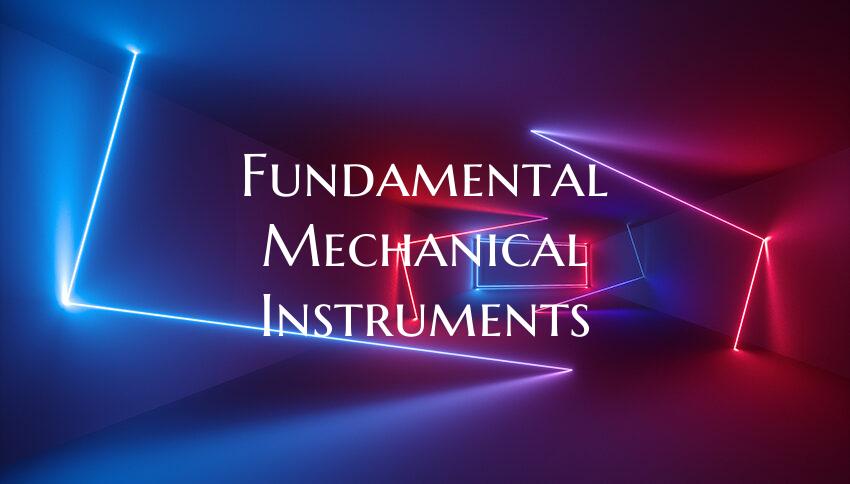Fundamental Mechanical Instruments
Mechanical instruments are essential tools used in various industries for measuring, monitoring, and controlling mechanical processes. These instruments play a crucial role in ensuring the accuracy, efficiency, and safety of operations in fields such as engineering, manufacturing, construction, and research. Understanding the fundamental mechanical instruments and their principles is vital for professionals working with machinery and equipment. Below are some common types of fundamental mechanical instruments:
1. Pressure Gauges: Pressure gauges are used to measure the pressure of gases or liquids in a system. They provide vital information for maintaining optimal operating conditions in boilers, pumps, hydraulic systems, and other pressure vessels.
2. Thermometers: Thermometers are instruments used to measure temperature. They are essential for monitoring heat levels in engines, industrial processes, HVAC systems, and environmental chambers. Different types of thermometers, such as mercury, digital, and infrared, are used depending on the application.
3. Flow Meters: Flow meters are devices used to measure the rate of flow of liquids or gases in a system. They are crucial for monitoring fluid flow in pipelines, water treatment plants, chemical processes, and HVAC systems. Various types of flow meters, including electromagnetic, ultrasonic, and turbine flow meters, are available for different applications.
4. Level Indicators: Level indicators are instruments used to measure and monitor the level of liquid in tanks, vessels, and containers. They are essential for ensuring proper inventory management, preventing overflows, and maintaining optimal operating conditions in storage tanks, reactors, and process vessels.
5. Tachometers: Tachometers are instruments used to measure the rotational speed of machinery such as motors, engines, and turbines. They are essential for monitoring the performance and efficiency of rotating equipment and ensuring smooth operation in various industrial processes.
Understanding the principles and functions of these fundamental mechanical instruments is vital for professionals and technicians involved in maintenance, quality control, and process optimization. Proper training and knowledge of these instruments help in identifying potential issues, troubleshooting problems, and ensuring the reliable operation of mechanical systems.
In conclusion, fundamental mechanical instruments are indispensable tools for measuring and monitoring mechanical processes in various industries. By understanding the principles and applications of these instruments, professionals can effectively control and optimize mechanical systems to ensure efficiency, safety, and reliability.

